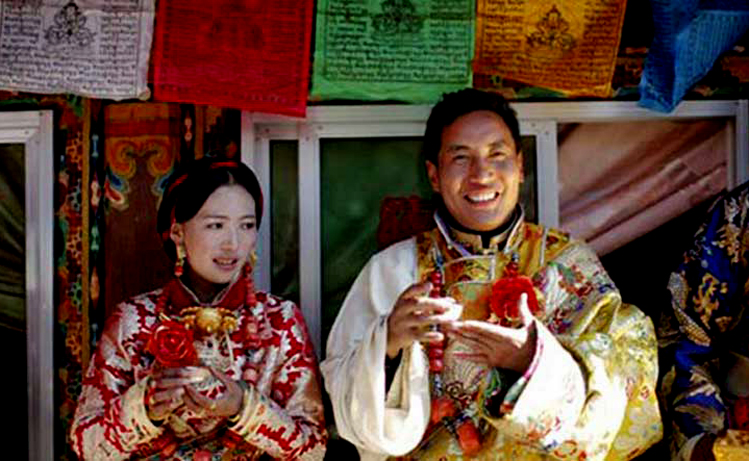
(TibetanReview.net, Aug12’21) – Calling ethnic equality and unity the cornerstones for Tibet’s rapid economic development, China’s official chinadaily.com.cn Aug 12 called Han-Tibetan couples a reflection of the region’s love of unity. Incidentally, inter-ethnic marriages remain a major tool employed by China for the Sinicization of the Tibetan Plateau.
Recent official media highlights of so-called Han-Tibetan marriages show that the policy is being vigorously reinforced under President Xi Jinping’s Sinicization of ethnic minority regions campaign.
Such marriages have always been actively encouraged with all sorts of favourable policies and highlighted in official media reports as examples for others to follow.
Official statistics showed that more than 40 ethnic minorities live in the Tibet autonomous region, and Tibetan inhabitants account for over 90 percent of the total 3.64 million population, the report said. However, it then continued, “nowadays, families consisting of members of different ethnic backgrounds are quite common in Tibet.”
As reform and opening-up deepens, the physical and emotional ties between Tibetans and people in the rest of China become closer, with frequent business interactions and a growing number of mixed communities, the report said.
The report highlighted four couples and the stories of their Han-Tibetan intermarriage, which were described as “a great demonstration of ethnic unity in this new era of development.”
All the couples are based in different parts of Nyingchi city and have succeeded well in their occupational pursuits thanks no doubt to the Chinese government’s favourable policy.
One couple was stated to have invested in 2003 about 2.6 million yuan ($401,120) to establish the first kindergarten in Zhongguo village. The second couple lives a happily retired life. The third couple runs a hotel in Bomi Town, earning “about 300,000 to 400,000 yuan per year nowadays”, with the Chinese husband being a deputy to the National People’s Congress in the township this year. And the fourth couple runs 12 greenhouses of vegetables, and a pig farm with around 300 livestock in Layue village, Lulang town, earning over 400,000 yuan last year.





